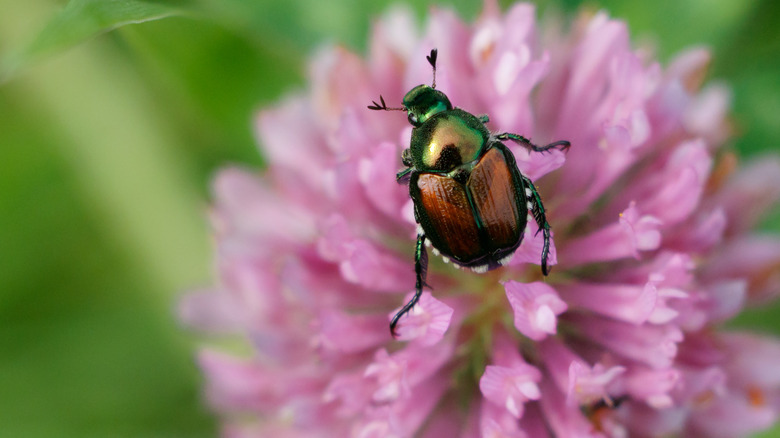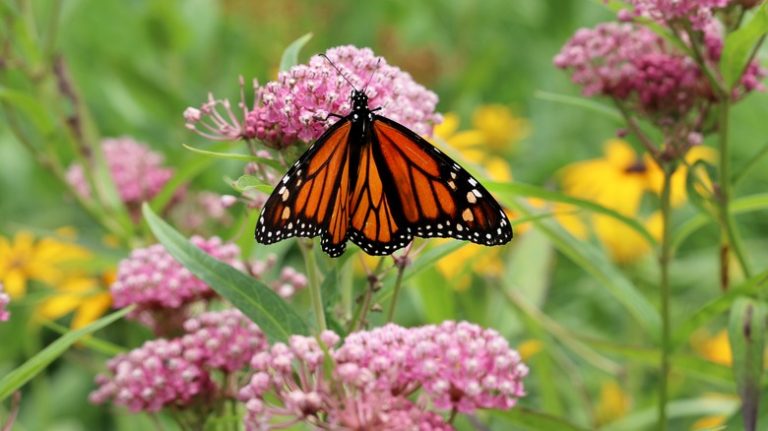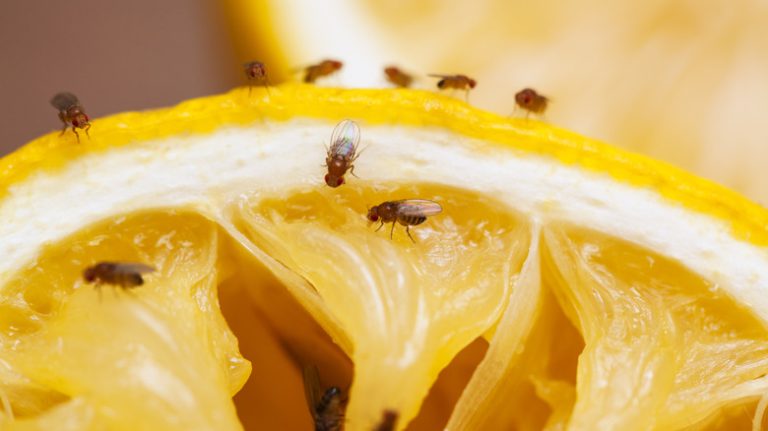Japanese beetles are an invasive species of insect that occupy most of the eastern United States. These pests feed on over 300 types of plants, including basil, marigold, soybean, raspberry, rose, hollyhock, grape, and various fruit trees. While the adult insects prefer blossoms, leaves, and fruit from your garden, the younger pests, known as grubs, eat grass roots. This can cause large patches of dead grass throughout your lawn, which may lead to skunks, moles, and other creatures digging up your yard to eat the grubs. Luckily, planting geraniums in your garden can help keep these invasive pests at bay.
While geraniums don’t always kill Japanese beetles, they can make the insects susceptible to becoming prey if they eat the flowers of the plant. According to the U.S. Department of Agriculture, Japanese beetles become paralyzed within 30 minutes of consuming geranium petals. While this effect typically disappears within a day, other predators are likely to eat the beetles during that time.
How to use geraniums against Japanese beetles
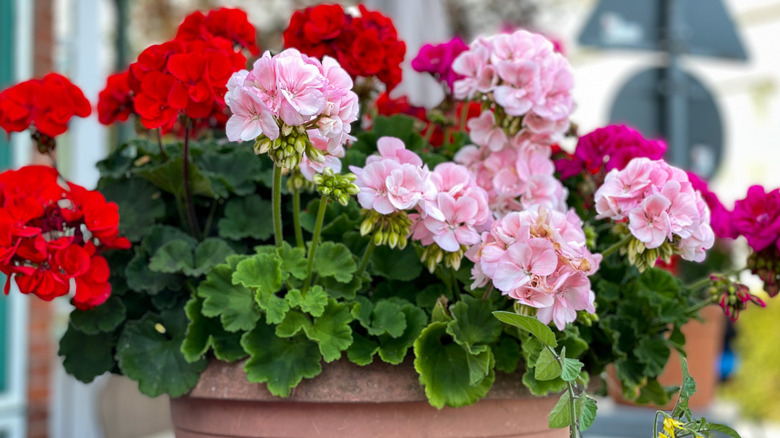
While most pest control methods deter insects, geraniums can attract Japanese beetles. These insects love to eat geranium flowers, despite it producing negative effects that leave them extremely vulnerable. If Japanese beetles are already pestering your plants, having a separate flower bed with only geraniums may encourage the bugs to migrate there. Once they start eating the flowers, they will become immobilized, and other predators will have an easy source of food.
It’s important not to grow the geraniums with the plants being harmed by Japanese beetles, as this could bring more of them to the area. If you don’t want to use up a whole flower bed, you could place potted geraniums around your outdoor space, as long as they’re not too close to your other flowers or vegetable garden. Keep in mind that the beetles will munch on the geraniums and that the flowers will retain some damage, but so will the insects.
How geraniums affect Japanese beetles
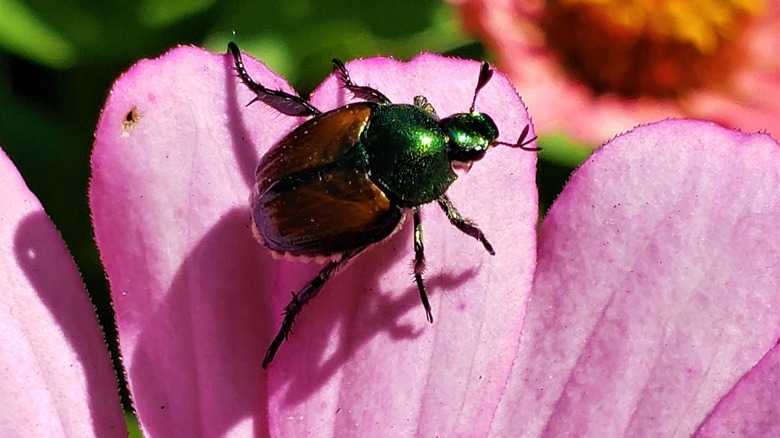
Pixabay
While consuming the leaves of geraniums does not affect beetles, the flowers cause paralysis that starts with the back legs and spreads. The bug will typically roll onto its back as paralysis begins. Many beetles recover from this intoxication, but some will die even if they’re not attacked by other critters looking for food, according to a study published in Environmental Entomology. The study also states that the color of the geranium’s flowers did not change the effect on the insects. Whether you decide to plant white, red, or pink zonal geraniums, the flowers will paralyze Japanese beetles.
Geraniums are also known to deter other types of insects, such as mosquitoes, aphids, spider mites, whiteflies, ants, and cockroaches. If Japanese beetles have been eating your roses or destroying your vegetable garden, planting geraniums nearby could help to distract them from your garden and leave them at the mercy of predators.

